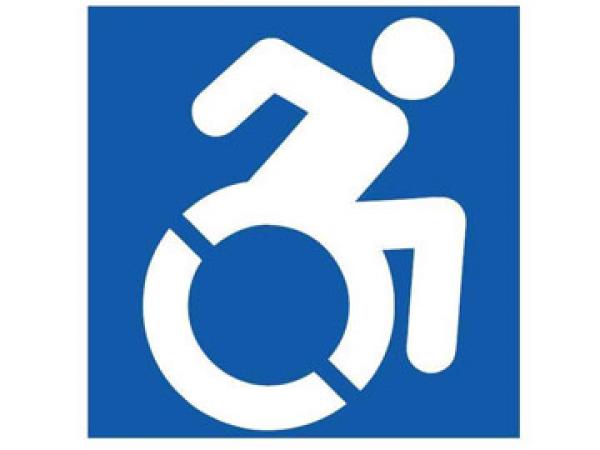“˜Nothing About Us, Without Us!’ - keeping the Constitution alive

The stories told by the mothers of three children with disabilities at a series of workshops at the Constitutional Court underline the contrast between constitutional rights and the grim reality.
‘Nothing About Us, Without Us!’ is the slogan of the disability rights movement in South Africa. It stems from the idea that no policy or law should be developed or implemented without the input of the people it affects. The slogan captures the democratic and participatory nature of our Freedom Charter-inspired Constitution.
The Freedom Charter exclaims that “The People Shall Govern!”. The Constitutional Court has found that this same ideology of ‘participatory democracy’ is at the Constitution’s core. Like the Constitution itself, however, this principle is not rhetorical or merely a lofty ideal of application in the policy and law-making context.
People’s life-experiences and self-described narratives should be placed at the core of our understanding of constitutional rights.
Members of the Know Your Constitution campaign often find that we have much to learn about the meaning of rights from those to whom we seek to explain their legal and social significance.
In March 2014, the Know Your Constitution campaign hosted a series of constitutional education workshops at the Constitutional Court. A workshops on the rights of people with disabilities was presented by SECTION27 and Afrika Tikkun’s self-help group Sidinga Uthando, a group of people who care for children with disabilities from the township of Orange Farm south of Johannesburg.
We kicked off by asking three mothers of children with disabilities to tell their and their children’s stories.
They spoke about the challenges of being a mother of a child with a disability.
Elizabeth Ramakatsa, the chairperson of Sidinga Uthando, has a six year old son with with hemiplegia. Although he is in Grade R at an Afrika Tikkun Early Childhood Development Centre, it is uncertain that he will be accepted into a local primary school next year.
Maria Mashimbye has a 10 year old son who is a wheelchair user. It took her years to find him a space in a school in the neighbouring town of Sebokeng. Maria wondered aloud what God’s plan could be for her and her child, given the stigma attached to disability in her community.
She described how community members had told her that her child looked like a ‘cockroach’ with a head that looked like a ‘loaf of brown bread’.
Doreen Moloke had to remain calm and focussed while her 8 year old son - who has Down Syndrome- tugged continuously at her leg as she spoke about her difficulty in finding him a school. Her child has never been to school, in spite of his mother’s tireless efforts and applications to several schools in Gauteng.
The tellers of the stories captured the audience’s imagination and transported strangers directly into their lives: making real the difficulties experienced by people with disabilities in accessing their human rights.
In South Africa, more than two million people have some form of disability. Only 104,000 children with disabilities are enrolled in special needs schools. These children only have a choice of 63 schools nationally to matriculate from. A further 118,000 learners with disabilities are enrolled in “ordinary schools”. This leaves 500,000 children with disabilities who do not attend school at all.
These chilling statistics have not demotivated the people of Siphilisa isiZwa, a grassroots movement of people with disabilities who have begun to use their understanding of human rights to access education for learners with disabilities.
With the assistance of human rights lawyers, Siphilisa isiZwa has collected 300 stories in the form of statements from people which not only capture the meaning and effectiveness of rights in their lives, but are now also invested with the power of the law.
The organisation may choose to use these statements as legally valid proof of violations of their constitutional rights in court proceedings. If they do choose to do so, their lives will become part of law – part of our understanding of human rights. This will help policy-makers, legislators and judges to understand the Constitution through their lives.
There is, and will be for a long time to come, a stark contrast between the rights detailed in the Constitution and the realities experienced by the vast majority of people in South Africa.
This is not reason to abandon the Constitution: on the contrary, it is added reason to ensure that we work diligently towards closing the distances between what the Constitution requires and the realities faced by the people in South Africa.
The task is made more difficult by the fact that most South Africans are not encouraged to engage with and understand the Constitution. Increased constitutional literacy is therefore central to transformation.
The Constitution, as the Constitutional Court has explained, is a living document. If we do not keep it with us it will, like many many other Constitutions worldwide, become stuck in the past and obstruct our progress as a society. To prevent this, we need to encourage people to follow in the footsteps of Sidinga Uthando and Siphilisa isiZwa, and continue writing it.
Muhammad Zakaria Suleman is Junior Researcher at SECTION27 with a focus on disability rights; he tweets at @AbstrakZak. Tim Fish Hodgson is a Researcher at SECTION27 with a focus on constitutional literacy; he tweets at @TimFish42. SECTION27 and Afrika Tikkun are members of the Know Your Constitution campaign. For more information contact Jean at jeane [at] afrikatikkun.org or Tim at fish [at] section27.org.za and Zak at suleman [at] section27.org.za.
Support independent journalism
Donate using Payfast

Don't miss out on the latest news
We respect your privacy, and promise we won't spam you.
Next: Jail in Canada for “Dr Shock”
Previous: Deploying the army to the Cape Flats won’t work

This article is licensed under a Creative Commons Attribution-NoDerivatives 4.0 International License.
